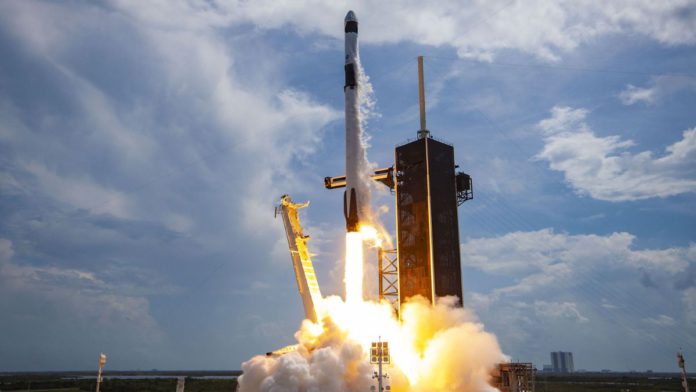Last year in May, Cryptosat — a startup creating satellites that beam cryptographic building blocks down to Earth — had successfully put its first satellite, Crypto1, into orbit with help from SpaceX. Now, Cryptosat’s crypto-satellite network has grown with the launch of its second orbiting satellite, Crypto2. On January 3, the cryptographically equipped device was launched into space onboard SpaceX Falcon 9.
Cryptosat software was part of the consignment on SpaceX’s maiden voyage in 2023, supporting Cryptosat’s goal of establishing a Trusted Execution Environment in orbit. In addition to Cryprosat, SpaceX launched 114 other tiny satellites for 23 operators into polar orbit.
Comparatively, Crypto2 boasts 30 times more computing power than Crypto1. With the addition of new satellites to the constellation, Cryptosat is trying to turn space into a new “battleground” in the quest for bulletproof cryptography by increasing computer power.
The launch of Crypto2 is a significant step toward infrastructure expansion from a single satellite in 2022, according to Yonatan Winetraub, co-founder of Cryptosat. “This launch gives us more availability and more powerful specs to support the growing portfolio of use cases in our development pipeline,” says Yonatan.
Read Also: Turkey Announces Blockchain-Based Digital Identity To Login Online Public Services
By isolating computer environments in orbit, where they cannot be as easily targeted, Cryptosat attempts to enhance cryptographic security for sensitive operations. The startup ensures that there has been no outside interference with the computing environment before it is deployed into space by using its own satellites that were designed from the ground up.
With the launch of Crypto1, Cryptosat sought to make blockchain applications more accessible by offering a physically inaccessible, tamper-proof platform. The International Space Station, or ISS, had previously served as a testing ground for the satellite’s technologies to investigate data security applications in space.
Last month, Cryptosat published an API tutorial with a simulated satellite trajectory. This was crucial because now developers can acquire an idea of how to communicate with Cryptosat’s low earth orbit (LEO) satellites in space using the Cryptosim software.
Cryptosat is not the only company that has experimented with blockchain technology’s applications in outer space. As part of SpaceX’s CRS-19 commercial resupply service mission, SpaceChain, a space blockchain company with its headquarters in Singapore, sent its blockchain hardware wallet technology to the International Space Station (ISS) in 2019. Earlier that year, as part of its Kick-start Activity program, the European Space Agency (ESA) gave SpaceChain funding to explore and uncover commercial use cases for its blockchain-based satellite technology. SpaceChain had also collaborated with PricewaterhouseCoopers in France to research its space applications.


